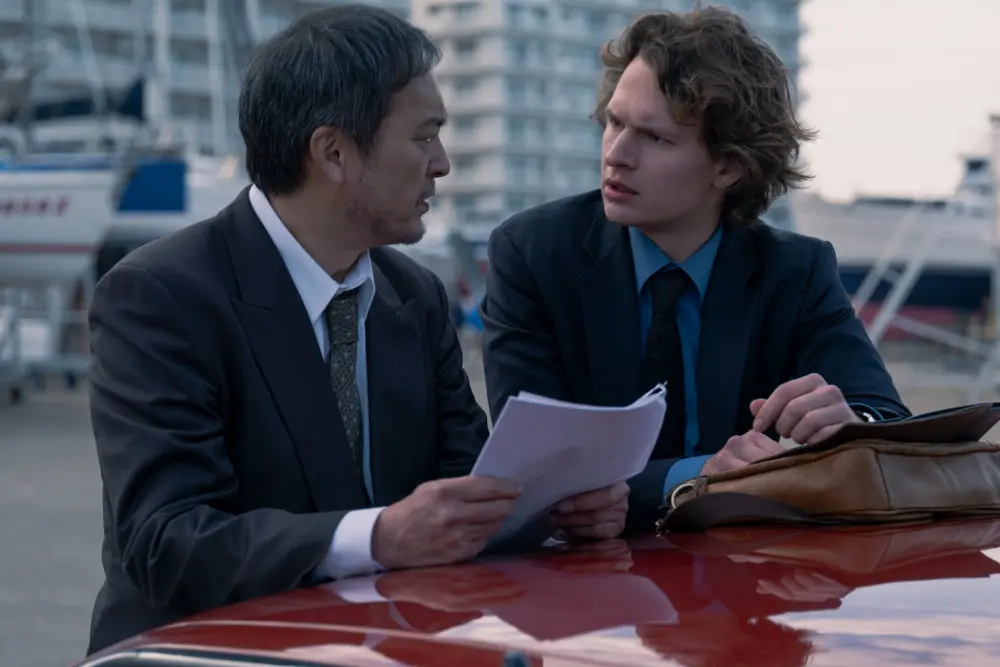Navigating the novel production landscape in Japan
Tokyo Vice producer Alex Boden sheds light on unique challenges
During the Tokyo International Film Festival, Alex Boden, the producer behind the groundbreaking series Tokyo Vice, discussed the incredible journey of filming the first U.S. studio streamer shot entirely in Japan.
The enticing allure of an authentic setting
Created by J.T. Rogers and led by a stellar cast including Ken Watanabe, Ansel Elgort, Rachel Keller, and Kikuchi Rinko, Tokyo Vice dives into the experiences of a Western journalist navigating Tokyo’s complex underworld. Boden’s commitment to authenticity meant overcoming significant hurdles to shoot the entire series on location in Japan. With other international productions opting for countries like New Zealand and Germany for logistical ease, this decision was both bold and visionary.
Unique logistic challenges
From managing local customs to navigating Tokyo’s intricate permission processes, Boden detailed the great lengths taken to shoot amidst iconic districts like Shibuya, Akasaka, Shinjuku, and Kabukicho. “Each location in Japan has its own manager overseeing it from start to finish, adding layers of complexity,” Boden explained. Filming across densely populated areas with limited space further complicated logistics, requiring smaller and more numerous production trailers to accommodate the narrow streets.
Embracing local practices
The team’s approach was rooted in respect for Japanese customs and procedures. “We decided to adapt our methods to align with the established Japanese ways, and it proved to be the best decision,” Boden noted. This cultural sensitivity facilitated smoother operations and reinforced positive working relationships with local partners.
A transformative incentive for the industry
With the launch of the Japan Location Incentive Program (JLOX), offering a 50% reimbursement on qualifying expenditures up to JPY 1 billion (approximately $6.66 million), Japan’s film production landscape is set for a significant evolution. Boden emphasized that this program is a game changer, making Japan a more attractive destination for international productions. The incentive has already sparked a surge in interest, with near-weekly inquiries from filmmakers.
Future infrastructure needs
Despite these advancements, Boden highlighted the necessity for ongoing infrastructure improvements. “For example, gaining permission to film on the Tokyo subway remains a challenge. Additionally, financial accounting in Japan is more manual, necessitating less frequent cost reporting.” These insights underscore the importance of continuous adaptation and investment in local processes to support international productions.
Building a robust production ecosystem
Alex Boden’s experience with Tokyo Vice highlights the synergy between international expertise and local knowledge. By empowering local producers and crew, the series fostered a collaborative environment ripe for learning and innovation. Moving forward, Boden aims to enhance this collaboration through partnerships with entities like Film Solutions, to bridge Japanese industry professionals with global experiences.
Japan’s content industry on the global stage
Reflecting on Japan’s position in the global content market, Boden compared its potential to heavy industries like steel and semiconductors. He argued for strategic investment and ambitious direction to harness the country’s creative output, fostering job creation and ensuring the international visibility of local stories.
Prestige productions paving the way
Several high-profile projects are already benefiting from JLOX-backed incentives, including productions starring Dwayne Johnson, Emily Blunt, and Brendan Fraser. Additionally, visionary directors like James Cameron are exploring narratives centered around Japan, such as The Last Train from Hiroshima.
Boden’s experiences underscore the transformative potential of Japan’s evolving film industry. By balancing respect for local practices with innovative international techniques, the production of Tokyo Vice sets a precedent for future collaborations.
Stay tuned for more insights and updates from the world of film and television by following our latest stories!

 Italian
Italian







